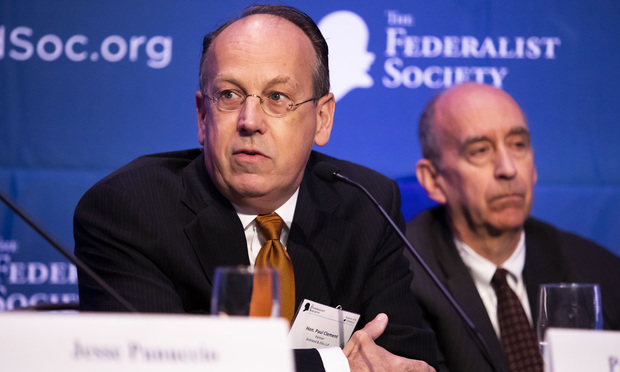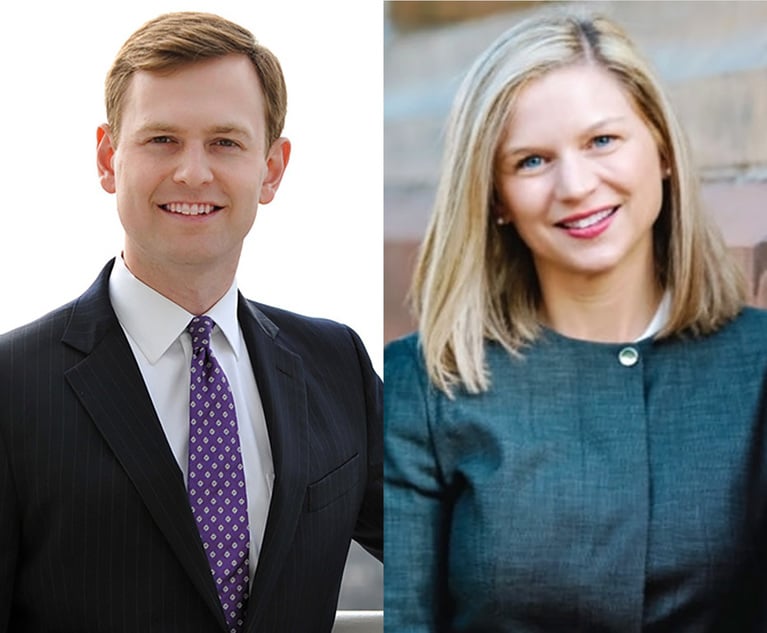During arguments Wednesday on challenges to free contraceptive health insurance under the Affordable Care Act, Chief Justice John Roberts Jr. expressed exasperation that the government and religious organizations have not resolved their differences over providing the coverage after nearly a decade, and he raised concerns about whether the Trump administration’s effort to exempt employers might “sweep too broadly.”
“I didn’t understand the problem at the time of Zubik [v. Burwell], and I’m not sure I understand it now,” said Roberts, who may hold the decisive vote in the combined cases Little Sisters of the Poor v. Pennsylvania and Trump v. Pennsylvania.

 Paul Clement, speaking at the Federalist Society’s 7th Annual Executive Branch Review Conference on May 8, 2019. (Photo: Diego M. Radzinschi / ALM)
Paul Clement, speaking at the Federalist Society’s 7th Annual Executive Branch Review Conference on May 8, 2019. (Photo: Diego M. Radzinschi / ALM)








